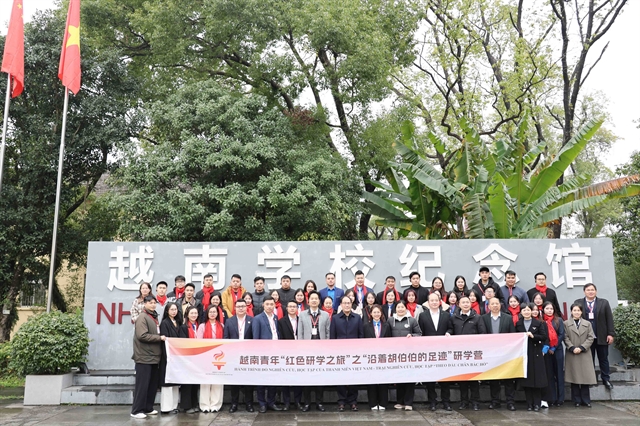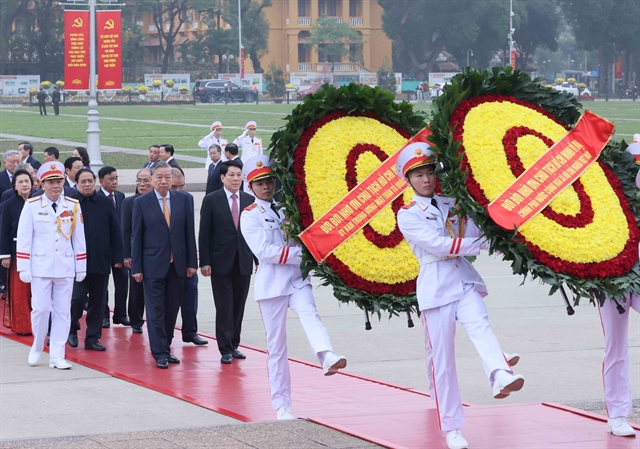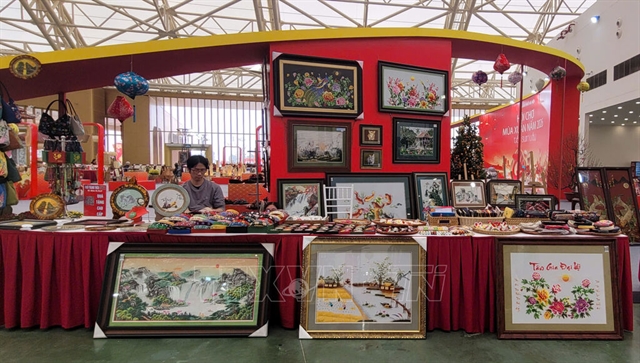.jfif) Opinion
Opinion

Phạm Minh Huân, former Chairman of the National Wage Council, speaks to the newspaper Nông thôn Ngày nay (Countryside Today) about salary increase proposals for 2018.
Phạm Minh Huân, former Chairman of the National Wage Council, speaks to the newspaper Nông thôn Ngày nay (Countryside Today) about salary increase proposals for 2018.
Why have the annual wage increase meetings been so tense?
The reasons are very easy to understand as all parties, particularly the Việt Nam Chamber of Commerce and Industry (VCCI) and the Việt Nam General Confederation of Labour (VGCL), all want to protect the rights and interests of those they represent. For example, the VGCL wants to protect employers’ rights while the VGCL wants to protect employee benefits.
In recent years the National Wage Council (NWC) has organised meetings between the two parties to negotiate and reach a consensus on the minimum wage increase for each region.
Whatever arguments the two parties present must be calculated carefully, based on scientific criteria and on the actual context of Việt Nam’s socio-economic conditions.
So what are the specific criteria for calculating the minimum wage increase for each region?
In my opinion, the calculation of the minimum wage should be based on minimum living requirements, the consumer price index (CPI), the employment situation and average wage in each region.
However, currently wages cover over 90 per cent of the workers’ minimum living needs. That’s why, in my opinion, we should cut down the minimum wage increase.
Many of our economic sectors have lost their balance, particularly the textile and shoe and leather sectors. Employers of these sectors have tried not to dismiss workers despite their growing cost.
In addition, if we increase pay, we also have to increase product prices. Do you know what will happen then? Our products will be at a disadvantage in the fierce international competition they face and finally we’ll lose orders. Workers will be the first to be affected.
That’s why when we negotiate raises, there are two areas we have to pay attention to - national competitiveness and investment attraction.
At present, the discrepancy between the VGCL and the VCCI is 8 per cent. Do you have any comment on such a big gap between the two parties?
To my understanding the VGCL suggested a 13 per cent increase in wages while the VCCI wanted to maintain the status quo. However, the VCCI says that if a pay raise is a must, it should be below five per cent.
I support the VCCI’s proposal. As we all know, high salaries must go hand-in-hand with high labour productivity. However, labour productivity in our country remains low and the national economy faces many difficulties and challenges. The National Wage Council should seriously consider this argument.
The second idea I want to mention is the difference between the salaries of white collar workers and State employees and those of industrial workers. As we all know, those in the public administration get their pay raise every four or five years and the minimum amount is US$4 per month. Meanwhile the blue collar workers get an annual pay raise that is at least four or five times higher.
So in my opinion, to make the wage negotiations more useful, the NWC should provide those attending the meeting with specific data and an overall picture of the country’s socio-economic development. To my understanding, the NWC has come up with four scenarios on the pay raise.
In my opinion, the pay raise should be about five per cent as proposed by the VCCI. By 2019, if things go well, it can be increased.
The truth is that our enterprises are very weak. I’m afraid that strong pay increase pressure coupled with the increase in the social insurance fund by early next year will push enterprises into a corner. That’s why we need to sit together to find a way out for all parties involved.
Do you mean that we should add all the pay raise proposals and then divide them by two to get the final number?
No. I didn’t mean that. It is not like one plus one and then divide by two. What I want to say is that we should negotiate. If the parties cannot reach an agreement, the Government will come up with a final decision. However, in my opinion, we should apply a principle of give and take and a win-win solution will make all parties happy.
All we want is for the working people to be able to live on their wages while enterprises are able to continue operating normally.--VNS




